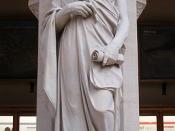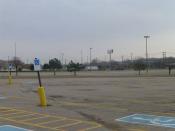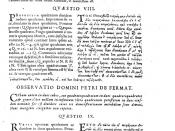Algebra is defined by Webster's New Collegiate Dictionary
as a generalization of arithmetic in which letters
representing numbers are combined according to the rules of
arithmetic. This is not a good definition of algebra. It
would take a thick book to really explain it. In fact, to
this day it is still being added to. There are always new
things to be discovered about it. It has been added to by
many different people over the centuries. Algebra has a
long interesting history.
The first work describing algebra was called
Arithmetica, a treatise by Diophantus of Alexandria. It
was a collection of 130 problem and numerical solutions.
Only 6 of the 13 books have been found, the others were
believed to have been destroyed soon after their creation.
Diophantus was known as the father of algebra. The way he
solved problems algebraically was know as Diophantine
analysis. He lived from about 200 AD to about 284 AD He
was the first to use an algebraic symbolism, in which
symbols and letters represented the unknown.
He refused to
believe that there was any such thing as a negative number.
He reasoned this by saying it is impossible to have
negative four objects. He did much work with quadratic
equations and even equations with variables to the sixth
power. Diophantus also seemed to know that any whole
number could be written as the sum of four squares. Pierre
de Fermat did some work with this but it was not proved
until later when Joseph Louis Lagrange worked with it.
Despite all of Diophantus's work algebra had a long way to
go before general problems could be written down and
solved.
There were many other influential people in the
history of mathematics. One such man was named Theon of
Alexandria. He wrote...


